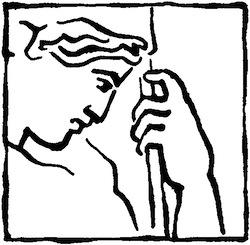Titel
Method and Politics in Plato's Statesman.
Schrijver
LANE, M.S.,
ISBN
9780521582292
Uitgever
Prijs
€ 65,00
Bijzonderheden
University Press, Cambridge, 1998. XIII,229p. Hardbound with dust wrps
Meer info
Series: Cambridge Classical Studies. Nice copy.
Scrinium
Aalten 

Wij beschrijven de staat van het boek. Wanneer er geen bijzonderheden vermeld worden mag u ervan uitgaan dat het boek zich in goede -tweedehands- staat bevindt.
Wij zijn gespecialiseerd in boeken met betrekking tot de klassieke oudheid: teksten, commentaren, vertalingen, boeken over (klassieke) (kunst)geschiedenis en archeologie, filosofie, mythologie en taalkunde, over het vroege christendom en de receptie van de klassieken in Middeleeuwen en Renaissance.
- Alle boeken zijn compleet en verkeren in normale antiquarische staat, tenzij anders beschreven. Kleine onvolkomenheden, zoals een ingeplakte ex-libris of een naam op het schutblad, zijn niet altijd vermeld
- U handelt deze order direct af met Scrinium
- Na uw bestelling ontvangen u en Scrinium een bevestiging per e-mail. In de e-mail staan de naam, adres, woonplaats en telefoonnummer van Scrinium vermeld
- De Koper betaalt de verzendkosten, tenzij anders overeen gekomen
- Scrinium kan betaling vooraf vragen
- Boekwinkeltjes.nl probeert Kopers en Verkopers tot elkaar te brengen. Boekwinkeltjes.nl is echter nimmer partij bij een overeenkomst die gesloten wordt tussen Koper en Verkoper door gebruikmaking van de site. Als u een geschil hebt met één of meer gebruikers, dient u dit zelf op te lossen. U vrijwaart Boekwinkeltjes.nl van enigerlei vorderingen, aanspraken op schadevergoeding en dergelijke, verband houdende met dergelijke geschillen.
